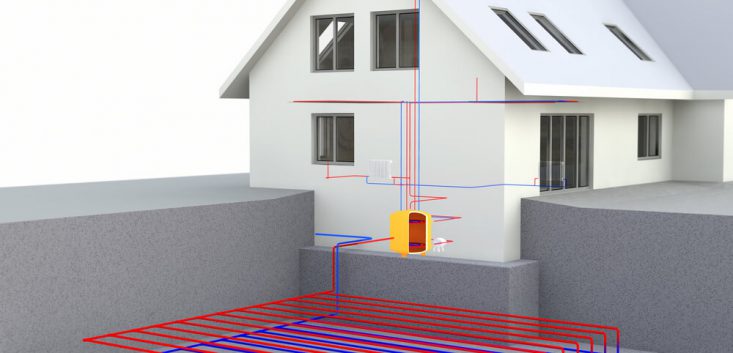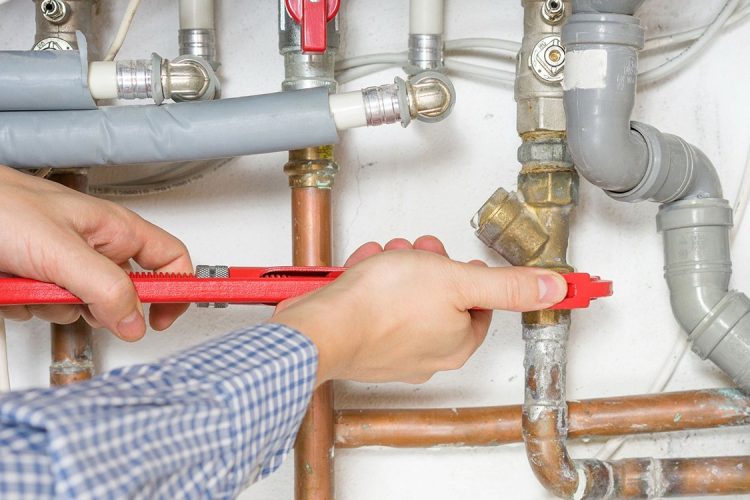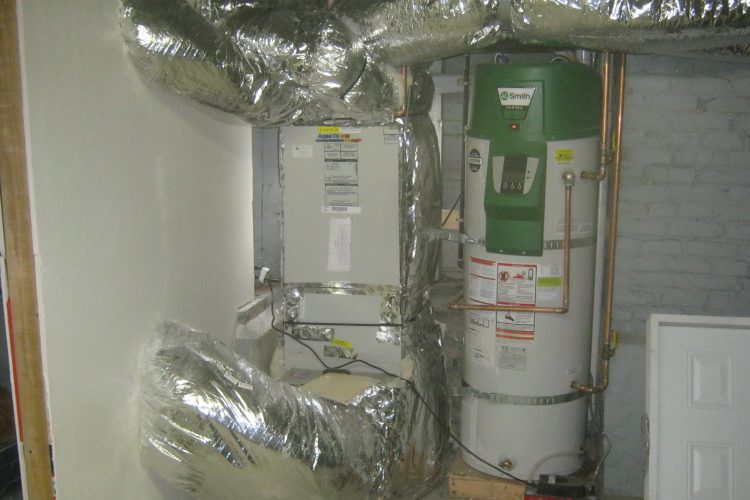
An increasingly popular choice for homeowners looking to upgrade or replace their existing heating and cooling systems is geothermal heat pump systems. Installing a ground loop system heat pump will meet the needs of the locals’ heating and cooling systems. To help you decide if geothermal heating and cooling systems are the best HVAC system solution for your home, we will explain how does geothermal heating and cooling work. If you’re thinking about a new way to heat and cool your home that will save you money, lessen your carbon footprint, and maintain appropriate temperatures no matter the time of year, we can help.
The Operation of Geothermal Systems
Although the air temperature continually changes, the ground temperature, which is five to eight feet below the surface, remains constant at 55 to 60 degrees. This is significantly warmer than the average winter temperature and significantly colder than the average summer temperature. Using thermal energy, ground source heat pumps can absorb surface heat from the earth, process it through an underground geothermal loop, transfer the heat into your home through a duct system, and utilize it to heat it.
As an alternative, geothermal HVAC systems produce geothermal cooling by transferring heat from the house to the ground. The complete ground source heat pump system is powered by renewable energy, making it more economical and energy-efficient than traditional systems that generate heat through fuel combustion.
How Does Geothermal Heating And Cooling Work?
Using a ground loop pipe system, the geothermal system extracts heat from the earth and pumps it into your house throughout the winter. To warm your home, heat is taken up from below the surface of the earth, transferred inside, and allowed to circulate.
During the summer, the temperature-conducting fluid that is constantly running through a closed-loop system of pipes absorbs heat from the air in your house thanks to the geothermal system. The fluid takes in the heat from your house and moves underground, where it disperses and uses the earth as a heat sink before returning to your house in a never-ending cycle. During cooling cycles, heat is continuously moved out of your house, keeping it cool even on the warmest days.
Is Your Home a Good Fit for a Geothermal Heating and Cooling System?
When selecting the best HVAC system for your home, it’s critical to consider the requirements of both your family and your home. In contrast to conventional HVAC solutions such as a furnace or other system, a geothermal system has several important advantages:
Reduced utility expenditures:
The majority of your gas and electric bills go toward heating and cooling your home, while a geothermal system has extremely low running costs. Homeowners can save thousands of dollars a year by seeing as much as a 50% reduction in their summer and winter utility expenses.
Environmentally friendly:
Compared to other heating and cooling systems, geothermal systems are the most environmentally friendly since they don’t require a lot of electricity or fuel and are therefore sustainable.
Long-Lasting Equipment:
Geothermal systems have an extremely long lifespan, whereas furnaces, air conditioners, and other heat pumps have a lifespan of about ten years. The remainder of the equipment typically lasts 20 to 25 years, but the pipes should last at least 50 years.
Boosts Property Value:
When selling your house, a geothermal heating and cooling system can draw in more purchasers. You can also demonstrate the system’s worth by comparing your expenses to those of your nearby neighbours.
Low Maintenance:
They are simple to maintain because they don’t require heat exchangers, pilot lights, flue pipes, or outside units.
Healthier for you and your family:
Geothermal units enhance the quality of the air in your house, which makes it more bearable and comfortable for anyone with asthma, allergies, or other respiratory or medical issues.
A geothermal heat pump system might be costly to install initially, but most homeowners find that the long-term advantages and value make the investment worthwhile.
Does Geothermal Heating Seem Unrealistic? Not at all!
Furthermore, it’s a prevalent myth that geothermal heating is limited to a certain area of the world. Although areas with volcanic activity, which are frequently found near tectonic plate borders, produce more geothermal energy and are frequently home to utility-scale geothermal electric power plants, residential geothermal technology can be used by homes anywhere to provide low-cost, emission-free heating and cooling.
Geothermal Heat and Cooling System Types
Geothermal heating and cooling systems come in several varieties, with unique designs to better fit their respective environments.
Closed-loop Mechanism
A Closed Loop Geothermal System: What Is It? Through underground or submerged plastic pipes, a closed-loop geothermal system continually circulates a heat transfer solution. The loop only needs a small amount of solution and is filled once. There is a closed loop where the same solution is applied repeatedly!
Lake/Pond Systems
Instead of using a closed loop piping system, pond or lake systems make advantage of an already-existing body of water. The pipes can either be placed on the water’s bed or submerged in it during this minimally excavating procedure.
Systems in Open Loop
Well, hot spring, or groundwater are some of the sources of water used in open loop geothermal heating and cooling systems. In order to heat and cool the house, groundwater is directly pumped through the system. Usually, there is one point of entry for the fresh water and a different point of exit for the spent water, which cycles the water back through the earth.
Conclusion:
All the tips are mentioned on how does geothermal heating and cooling work in this article. With the use of geothermal technology, heat from the earth’s subsurface can be directly used to heat and cool buildings or transformed into electrical power. However, resources with a medium or high temperature are required to produce electricity. There are hazards associated with any industrial attempt, but geothermal energy is safe when it is extracted from the proper place and by a professional. Using hot springs for warmth and cleaning, our ancestors relished the benefits of geothermal energy.



